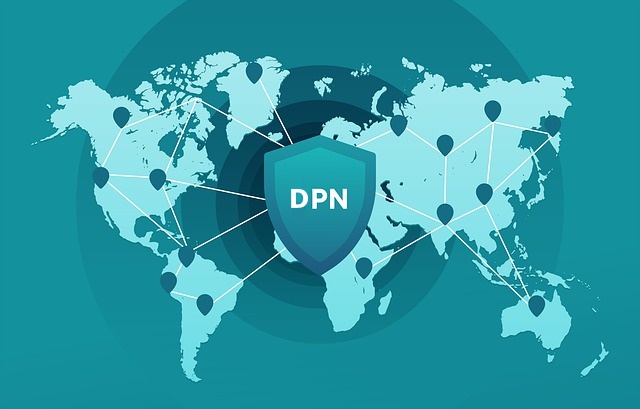What Is a Decentralized Private Network?
When the Internet emerged, everyone thought that this could be the real freedom to humankind. Meaning you can make your own decisions, you can do whatever you want to do through the Internet.
But as time passes. The Internet has not become the stage for democracy. Instead, governments, ISPs and giant tech companies control all the activities you do on the internet.
To get us out of this censorship jargon, VPNs emerged, ensuring all online activity not been censored by governments and tech giants.
For making censorship resistant VPNs encrypt your data and use a secure tunnel to transfer traffic to a private server. This way, your government can no longer track your address. Even you’re shielded from hackers and snoopy ISP providers.
However, one big problem with VPNs is centralization. VPN services are owned by private companies, so they decide how to handle your security and keep the log of all your activity to hand over to governments and compromise your security. Some VPNs can be vulnerable, so hackers can easily steal your data.
To tackle the VPN problem, a solution emerged in the form of DPN AKA Decentralized Private Network.
What Is DPN?
A Decentralized Private Network works the same as a VPN, but one big difference is all the activities are decentralized, meaning DPN uses decentralized encrypted tunnels to route web traffic in a distributed manner.
DPN does not depend on a single server; instead, all the user devices act as both server and client; the IP addresses automatically change based on DPA platform routing rules, establishing tunnels to other nodes all over the world.
Here is a small example of how DPNs work.
Mr A lives in India and wants to access US Netflix a DPN automatically barrows MR B’s residential IP address in the US to avoid being geo-blocked. At the same time, Mr C in China will be borrowing Mr A IP address to access YouTube.
As you saw in the above example, DPNs do not depend on central servers, and they encrypt all the activities. Blockchain helps DPN nodes to communicate and make decisions that impact the private network.
DPN V/S VPN.
| DPN | VPN |
|---|---|
| The network is decentralized. | A company controls the Network. |
| Uses the blockchain. | Uses servers. |
| No single point of failures. | Since the network controlled by the company’s server, there is a single point of failure. |
| Ensure better security by using blockchain. | Paid VPNs offer a good level of privacy and security, but with free VPNs, you can’t expect that. |
| Most DPN projects are open source, you can view the clients on Github. | Companies control the whole network, so it is not open source, and no one can alter or improve the software. |
| Good Speed. | Speed is dependent upon the VPN provider and plans you chose. |
Benefits of DPN.
Enhanced Security.
All the traffic flow through DPN is protected by encryption even though you may connect the Internet through someone else’s traffic overseas, but you are not compromised. Both you and the node contributed are protected using advanced encryption.
Privacy.
Shielded by encryption and the whole network is decentralized, DPNs do not compromise any data flow through them.
Provide Incentives.
Yes… Using the DPN, you can earn tokens by actively contributing bandwidth to the network.
For example, by contributing your bandwidth to DPN called Deeper Network, you can earn DPR tokens.
Cost-Effective.
Any premium VPN service would cost you around $30 to $100 in a year but using DPN you’re able to save because platform tokens fluctuate.
Even physical DPN devices like Deeper Connect cost you around $500 in one time buy.
Ok, these are all some benefits of DPNs.
Now, look at some drawbacks of DPNs so you can get the complete picture of DPN before using one.
Drawbacks of DPN.
51% Attack.
If any malicious node gets control over the 51% of DPN, then the node can control all the network activities, but no such attacks caused serious damages to the blockchain networks.
Speed.
Because anyone can share their traffic, the quality of connections differs. Some may have faster connections. Others may use highly advanced security measures.
Now you know so much about DPNs, but still, DPNs are evolving, and you may face difficulty finding a suitable one for you.
So I made a list of some currently active DPN projects in the market.
List of Active DPN Projects.
#1. Deeper Network.
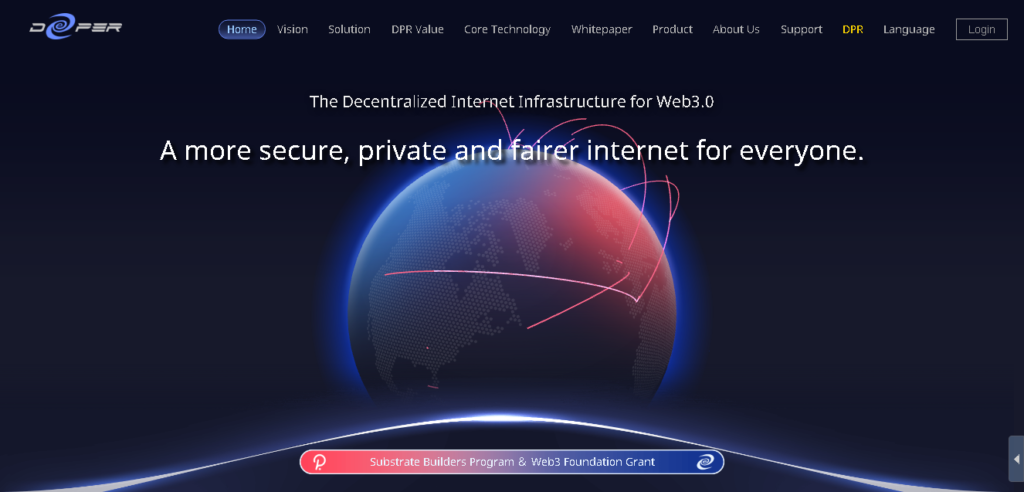
Founded back in 2018, Deeper Network crowned as the first blockchain powered secure gateway for internet browsing.
They developed their own operating system, adaptive tunnelling, intelligent routing, IP multiplexing and tunnel layer to ensure your anonymity and security.
The whole network is fueled by their own DPR token and part of Polkadot ecosystem.
#2. Deeper Connect Mini.
Deeper Connect mini is a device that provides you decentralized tunnelling with encryption.
Watch the review below to know more about the device.
The device cost you around $500 but remember this is a one time payment.
#3. Mysterium Network.
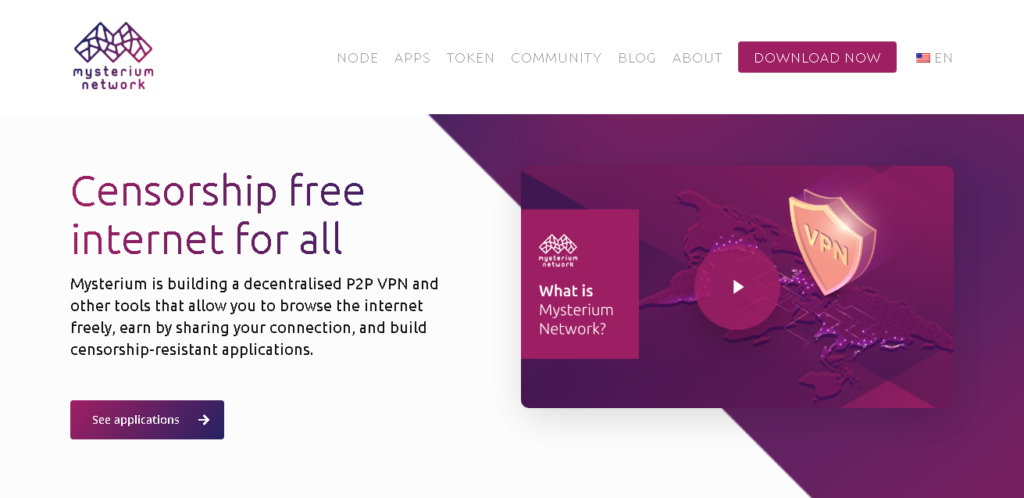
Mysterium Network is developed on the Ethereum blockchain with the help of smart contracts.
The network works the same as Deeper Network but builds upon Ethereum blockchain and is fueled by MYST token.
#4. HOPR.
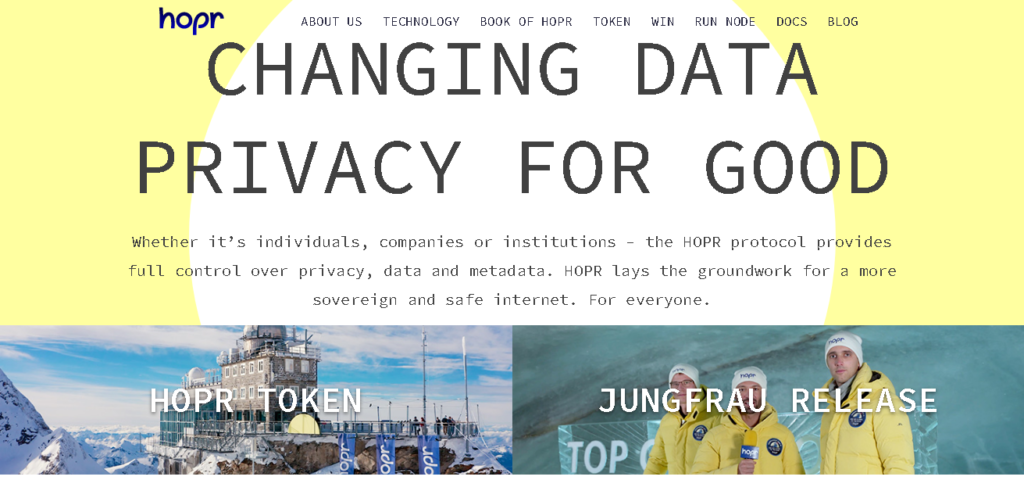
HOPR is another blockchain based DPN using their own Mixnet protocol that makes it difficult to track data exchanged on the internet.
They have their own token. “HOPR token” to fuel the entire network.
#5. Substratum.
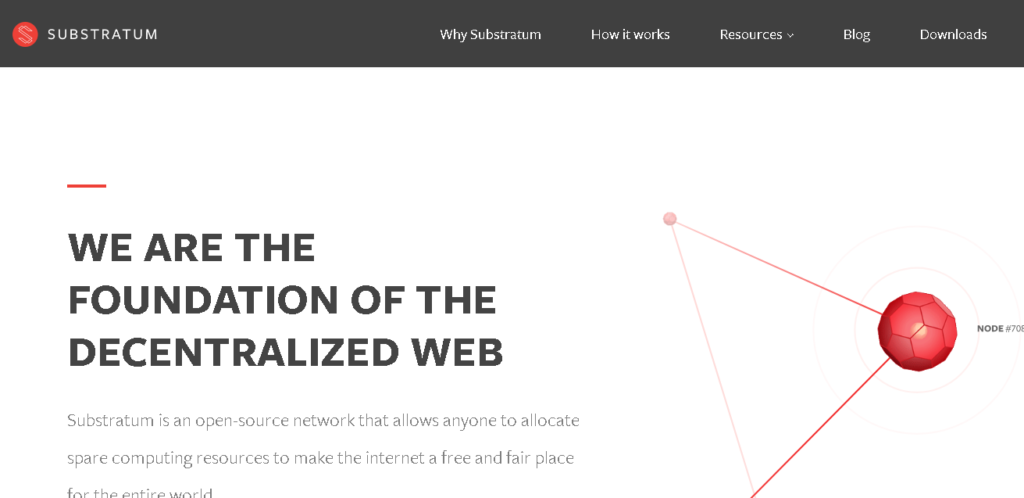
Launched in 2017, Substratum Network is a global network that allows anyone to host or access web content through nodes on the Substratum blockchain.
Substratum Nodes transfers content from hosts to web users. Anyone who runs a node is paid in SUB token.
#6. Sentinel.
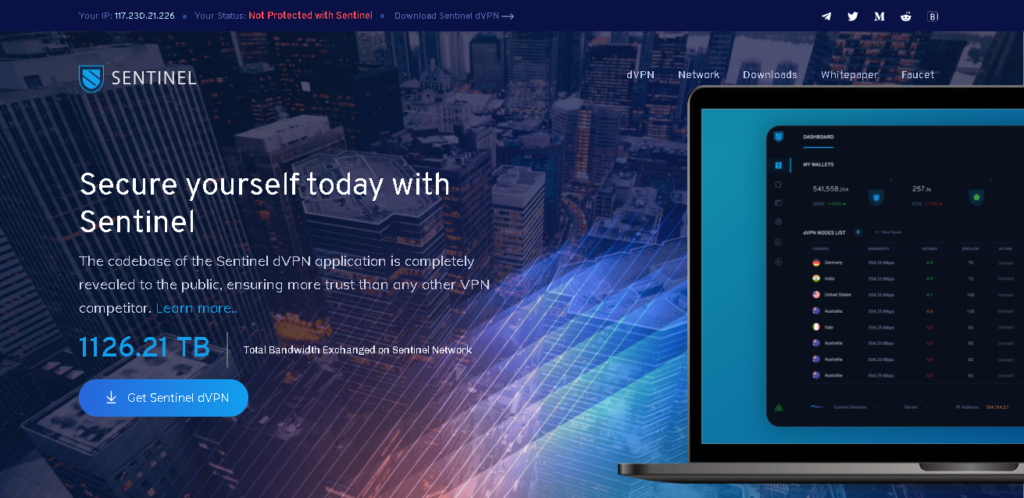
Operating since 2018, Sentinel DPN works the same as above on this list, allowing you to access the internet using their nodes or allowing you to host your own node and earn their token Sentinel.
The whole Sentinel ecosystem builds on the Ethereum blockchain.
Conclusion.
DPNs are taking a step forward to make the whole internet decentralizing but still, DPNs are in their infancy stage.
Because compared to the VPN market size, which is worth billions, the DPN market is not even close to that size, but as the crypto market grows day by day and people are becoming aware of decentralization, so the DPN market has a bright future ahead.
Now it is your turn to go ahead with DPNs.
If you decide to use DPN, which one do you prefer?
Or, share your experience of and DPN if you used one in the comments.
